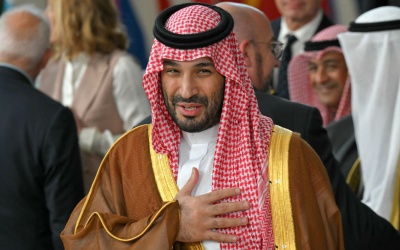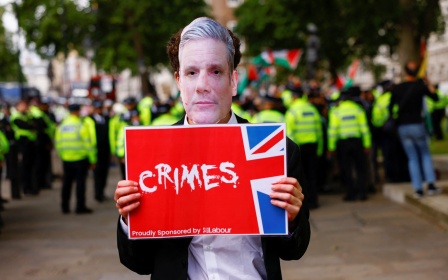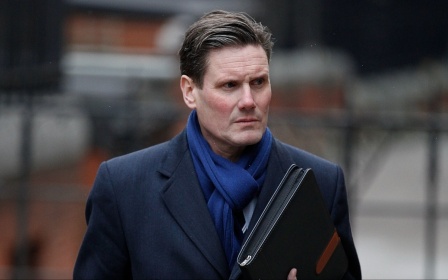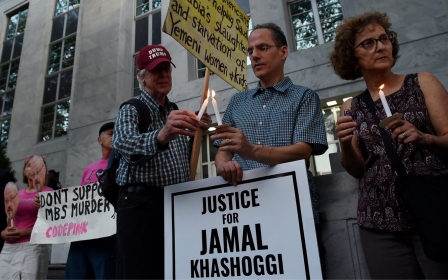Starmer to visit Saudi Arabia and UAE for investment amid human rights accusations

British Prime Minister Keir Starmer is set to visit Saudi Arabia and the United Arab Emirates (UAE) next month, reportedly seeking investment from sovereign wealth funds such as the Public Investment Fund (PIF), which is linked to human rights abuses.
His slated trip, which has not been officially announced but reported in the British media, comes after Starmer accused his Conservative predecessor Boris Johnson of going "cap in hand from dictator to dictator" for oil when he visited Saudi Arabia in 2022.
Starmer is understood to be trying to bolster Britain's diplomatic relations with the Gulf states and seek fresh investment from their sovereign wealth funds.
On Wednesday, Human Rights Watch (HRW) launched a new report that alleged that the PIF, Saudi Arabia's sovereign wealth fund controlled by Crown Prince Mohammed bin Salman, "facilitated and benefited from human rights abuses".
"The crown prince has used the fund's economic power to commit serious human rights violations and investments in foreign sporting events to whitewash the reputational harm," the 95-page report found.
New MEE newsletter: Jerusalem Dispatch
Sign up to get the latest insights and analysis on Israel-Palestine, alongside Turkey Unpacked and other MEE newsletters
It also says the PIF has "facilitated serious human rights violations" linked to Mohammed bin Salman "through companies it owns and controls, such as the 2018 murder of Saudi journalist Jamal Khashoggi".
Khashoggi, a Middle East Eye and Washington Post columnist, was killed and dismembered inside the Saudi consulate in Istanbul by a hit squad sent from Riyadh. The CIA concluded that the operation was signed off by the crown prince, an accusation he denies.
According to HRW, Sky Prime Aviation, a company controlled by the PIF, "owned the two planes used in 2018 by Saudi agents to travel to Istanbul, where they murdered Khashoggi".
The PIF already has significant investments in Britain, with a 40 percent stake in London's upmarket department store Selfridges and majority ownership of Newcastle United football club.
The Foreign Office declined to comment.
The UK's trade relationship with the Gulf Cooperation Council is worth £57bn, and Britain is looking to secure further investment for energy and infrastructure projects.
Douglas Alexander, Britain's trade policy minister, attended Saudi Arabia's investment forum in Riyadh in October.
Mending UK-UAE relations
British officials told the Financial Times that the government aims to reset relations with the UAE, which became strained under the previous Conservative government over criticisms of Emirati involvement in the war in Sudan.
The Emiratis even cancelled a number of meetings with UK ministers in April, reportedly because Britain did not defend the UAE when it was accused at the UN Security Council of aiding the paramilitary Rapid Support Forces (RSF), which has been accused of genocide.
Tory politicians also heavily criticised a blocked Emirates-backed bid to buy the Telegraph newspaper, which further soured relations.
In May, Oliver Dowden, then deputy prime minister, undertook a covert diplomatic mission to the UAE to seek to mend ties.
Now the Labour government aims to go further. Forging a stronger trade relationship with Gulf states was considered a central plank of Foreign Secretary David Lammy's approach even before he entered government in July.
Lammy has labelled his foreign policy vision "progressive realism".
This, he argued in opposition, meant using realist means "in the service of just goals - for example climate change, defending democracy, and advancing the world’s economic development".
Middle East Eye delivers independent and unrivalled coverage and analysis of the Middle East, North Africa and beyond. To learn more about republishing this content and the associated fees, please fill out this form. More about MEE can be found here.





